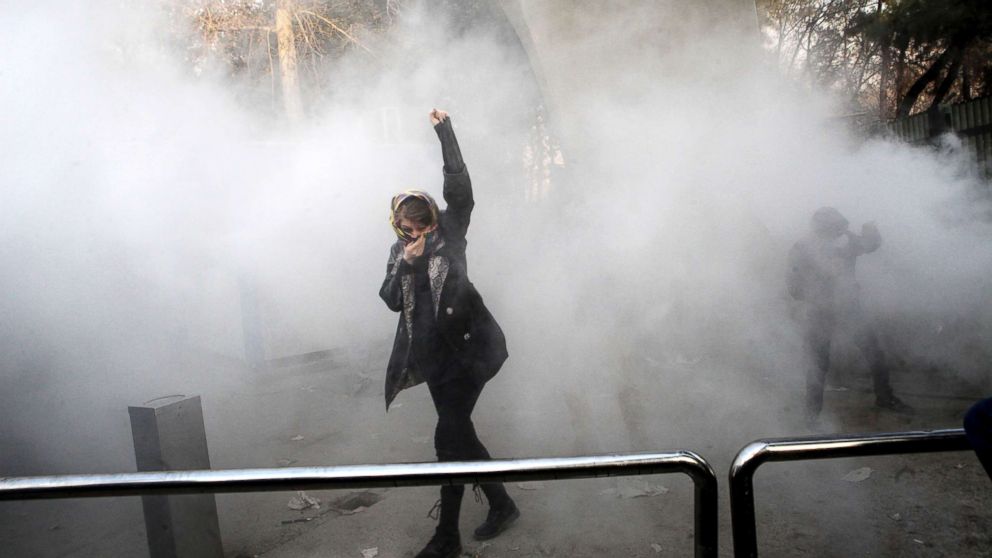On Sunday, Iran’s Revolutionary Guard announced an end to unrest fomented by “foreign enemies” and arrested former President Mahmoud Ahmadinejad for “inciting unrest against the government.” The Iranian regime’s claims ring hollow, as Ahmadinejad was always notably hostile to the countries accused of fomenting these protests (Saudi Arabia, Israel, UK and US). Ahmadinejad had attempted to run for president last year but he was banned from participating by the Ayatollah Khamenei’s Guardian Council.
The 2018 budget proposal of Iran’s recently-reelected “reform” President Hassan Rouhani included plans to give billions of dollars to organizations that make up Iran’s hardline religious establishment. The budget also proposed cutting cash subsidies to millions of citizens, raising fuel prices and privatizing public schools. Paired with the rising prices of eggs and other food staples, people around the country especially the poor and working-class felt betrayed and demanded that both the president and the country’s supreme cleric step down.
Many alternative news outlets have claimed that the protests were just another CIA-sponsored “Color Revolution”, which is possible but these most recent demonstrations have followed a different pattern from those of the past. These were started by working middle-class Iranians in the east of the country, far from the elites of Tehran and they spread to the rest of the country almost overnight, with the help of a free messaging app called Telegram, which has been used to spread messages about upcoming protests and to share images from demonstrations.
In a country of 80 million people, the Telegram app has 40 million users. Telegram was launched in 2013 by two Russian brothers who also founded VK, Russia’s largest social networking platform. Telegram boasts security features like self-destructing messages and secret chat functions and users can create groups for up to 50,000 people.
The Iranian regime blocked off access to Telegram last week but the people there have become tech-savvy over the years, in order to overcome the massive Internet censorship and many know how to set up Virtual Private Networks (VPNs) to circumvents government control.

